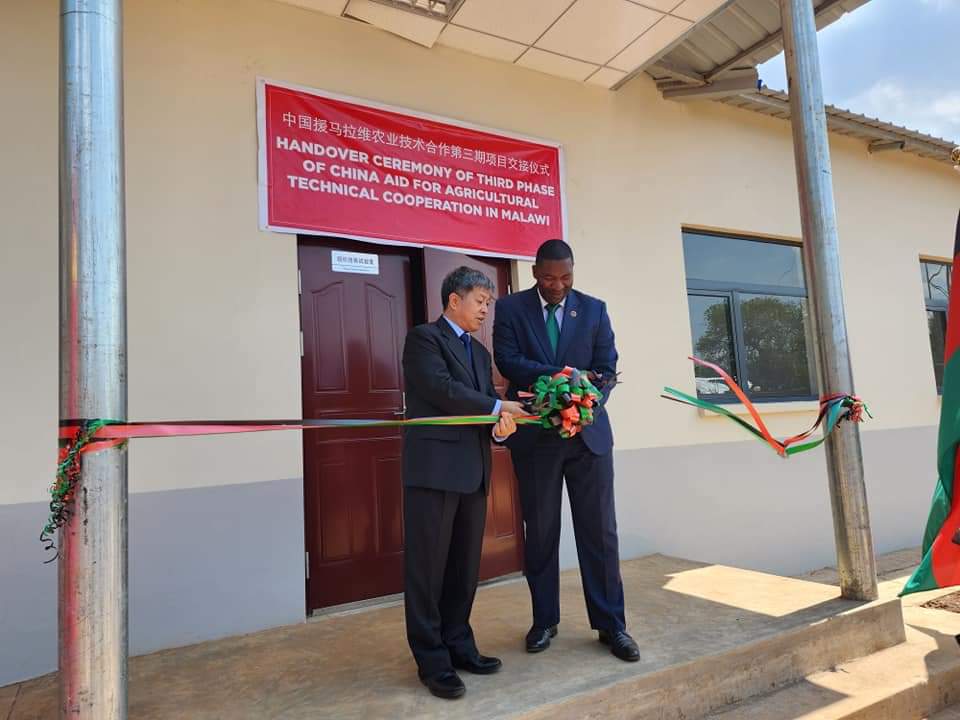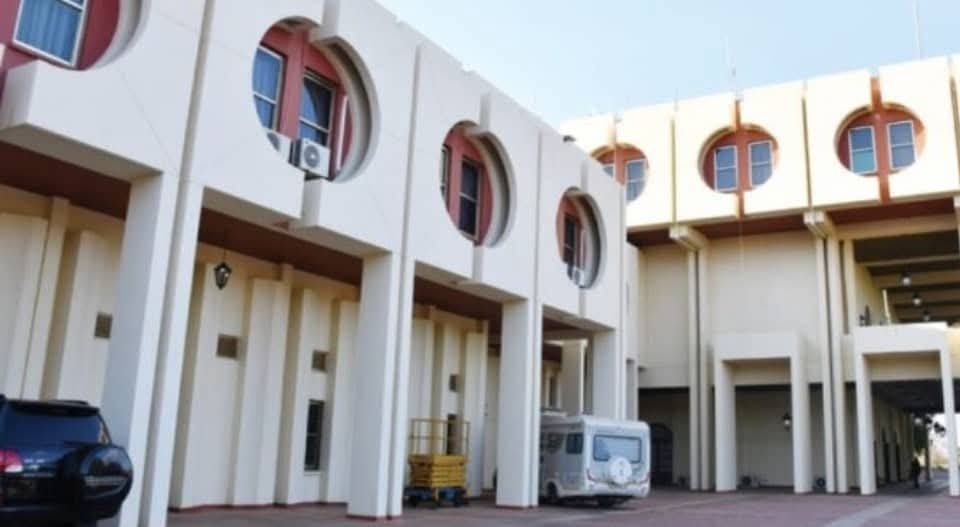Minister of Agriculture, Sam Kawale has called on Malawians to adopt new agricultural technologies to tackle climate change challenges and ensure food security.
Speaking at the handover ceremony of the third phase of China AID for Agricultural Technical Cooperation in Malawi, Thursday, at the Natural Resources Campus in Likuni, Lilongwe, Kawale emphasised the urgency of adapting to climate change.
Kawale highlighted that the Ministry of Agriculture, which aims to fulfill Malawi’s Vision 2063 with focus on Agriculture, Tourism, and Mining (ATM) strategy, is collaborating with the People’s Republic of China to develop innovative crop production methods, with a strong emphasis on research.
“Today, we have received a facility that the People’s Republic of China constructed for us to use as a Ministry, along with equipment that will be used at this station and the mega farm unit to help increase food production in different crops,” he explained.
He further mentioned that the equipment and infrastructure received from China will be put to good use to benefit Malawians.
“Our goal is to make sure that we have more people coming here to be trained and get the technologies developed here into the hands of farmers to increase production in their fields.
By increasing production over time, we will end hunger and generate income at the household level, which will help stimulate the economy as we focus on input substitution and forex generation through the crops grown by our farmers,” he said.
Kawale also expressed his gratitude to the People’s Republic of China and pledged to upgrade the facility to a state of excellence that other countries can learn from.
Counsellor in charge of Economic and Commercial Affairs at the Chinese Embassy, Zhang Chunfa, described the Agricultural Technical Cooperation Project as one that has significantly enhanced Malawi’s agricultural technology, increased crop yields, and improved employment and income for Malawians.
“This is a beneficial project that truly serves the people. Both China and Malawi are committed to continuing this collaboration and deepening agricultural cooperation,” said Zhang.
“I hope the Malawian side will take good care of the technical research materials, maintain the agricultural facilities and equipment, and ensure that the offices and living accommodations for the Chinese experts are well kept so that the next phase of the project can proceed smoothly,” he said.
The Agricultural Technical Cooperation Project is a landmark in agricultural cooperation between China and Malawi.
Over approximately nine years, three phases of the project have been implemented, yielding long-term benefits and recognition from both the Malawian government and its people.
In the past three and a half years, in close collaboration with the Ministry of Agriculture, the third phase project team has achieved remarkable outcomes, successfully conducting research, demonstration, and promotion of agricultural technologies on crops like vegetables, maize, rice, and fruit trees.
It also trained many agricultural technicians, provided machinery and equipment, and set up new facilities. These include a breeding centre, a tissue culture lab, 10 temperature-controlled greenhouses, and an agricultural machinery exhibition hall.
All of these have now been handed over to the Ministry of Agriculture.




